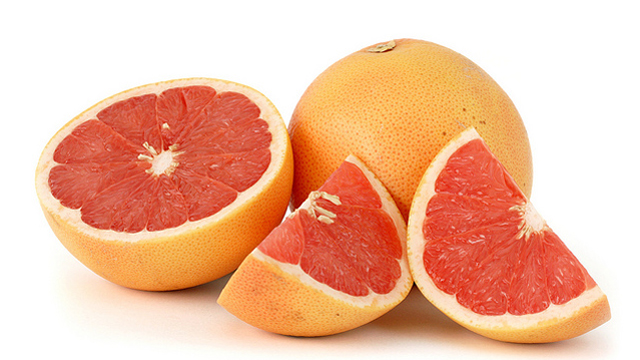
You follow the directions on your medication carefully, always taking the pills with the correct frequency and with or without food as directed. But have you discussed with your doctor or pharmacist whether ingesting grapefruit could cause an unintentional drug overdose?
A drug is normally metabolized in the gastrointestinal tract, but a liver enzyme called cytochrome P450 3A4 (CYP3A4) deactivates much of the drug so the body only absorbs about half of it. This process is taken into account when a doctor prescribes the necessary dose.
However, grapefruit, grapefruit juice, Seville bitter oranges (used in marmalade), limes and pomelos naturally contain chemicals called furanocoumarins. These furanocoumarins inhibit the CYP3A4 enzymes, causing the gut to absorb much more of the drug at a potentially toxic level. Sweet oranges, such as navel or Valencia, do not contain furanocoumarins.
David Bailey, Ph.D., a clinical pharmacologist at the Lawson Health Research Institute, discovered this interaction between grapefruit and some medications over 20 years ago. However, Bailey has recently released an updated list of medications affected by grapefruit in the peer-reviewed Canadian Medical Association Journal. The researchers say the number of drugs that interact with grapefruit has significantly increased to more than 85 as new drugs have come on the market, and 43 of these drugs could interact with grapefruit and lead to serious side effects, such as kidney damage, blood clots, respiratory depression, abnormal rapid heart beats (torsade de pointes) and sudden death.
The researchers provide a list of drugs predicted to interact with grapefruit, including:
• Drugs used to treat cancer: crizotinib, dasatinib, erlotinib, everolimus, lapatinib, nilotinib, pazopanib, sunitinib, vandetanib, vemurafenib
• Drugs used to treat or prevent infections: erythromycin, halofantrine, maraviroc, primaquine, quinine, rilpivirine
• Drugs used to treat high cholesterol: atorvastatin, lovastatin, simvastatin
• Drugs used to treat heart and blood vessel conditions: amiodarone, apixaban, clopidogrel, dronedarone, eplerenone, felodipine, nifedipine, quinidine, rivaroxaban, ticagrelor
• Drugs affecting the central nervous system: oral alfentanil, buspirone, dextromethorphan, oral fentanyl, oral ketamine, lurasidone, oxycodone, pimozide, quetiapine, triazolam, ziprasidone
• Drugs used to treat nausea: domperidone
• Drugs used to suppress the immune system: cyclosporine, everolimus, sirolimus, tacrolimus
• Drugs used to treat urinary tract conditions: darifenacin, fesoterodine, solifenain, silodosin, tamsulosin